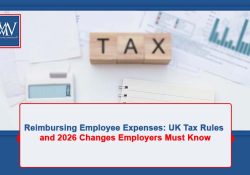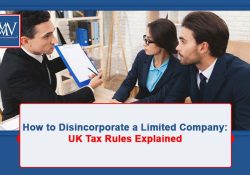Keeping financial records
At Makesworth Accountants we can advise businesses in the Harrow area on keeping financial, tax, accounting, and other records. Here are some of the key points.
Every business needs to have a good record retention policy. Failure to retain documents for the use of HM Revenue and Customs can result in significant fines. Other records which have no statutory retention period may be essential in later years for historical or research purposes.
Either way, you must ensure that you manage your business documents effectively, and, above all, that you keep the right ones.
Which records should be kept?
The documents that should be kept will vary from business to business, according to size, status and in some cases, personal preference. Some items should be kept permanently, such as deeds and title papers, accounting ledgers, incorporation documents and all of the business’s statutory records. Others can be discarded after allocated periods of time. The following is not an exhaustive list, but a rundown of common records that will be relevant to the majority of businesses.
Tax records
All business records must be kept for five years from the last date by which the relevant tax return was to be filed. But remember, this is only the minimum statutory requirement. You may wish to keep records for longer periods.
As a taxpayer, you will need to keep all documents related to money received and expended in the course of business, and any records concerning dealings in goods in the course of trade.
These include:
- Daily takings, including paid invoices, credit card receipts, and cheques.
- Expenses, including the purchase of capital items (such as machinery), general overheads (such as heating), materials and stock.
- Banking and cash transactions, including withdrawals, payments in, bank statements, cheques issued and checkbook stubs.
- Amounts paid into the business, such as loans and grants from personal sources.
You may also wish to retain personal financial papers for a similar time.
VAT records
VAT records must normally be kept for six years after the current date. Relevant records include:
- VAT accounts
- Annual accounts, including profit and loss accounts
- Orders and delivery notes
- Purchase and sales books
- Relevant business correspondence
- Cash and other account books
- Purchase and copy sales invoices
- Credit/debit notes issued or received
- Bank statements and paying-in slips
- Import and export documents
Accounting records
Records used to compile annual accounts normally need to be retained for two to three years. Annual accounts that have been audited should be kept permanently.
Wages and personnel records
Documents related to wages, such as P45, must be retained for six years. Records of income tax, payment details, and payroll, as well as national insurance contributions and annual earnings summaries, should also be kept for this period.
A confidential personnel file for every employee should be maintained. This will include such items as personal details, application forms and offer letters, national insurance number, payment details, and holiday/sickness information. For legal and reference purposes, this file should be kept for seven years after the end of the person’s employment. You might also include medical records, accident reports, expense accounts, and overtime details.
Other useful records
It is often useful to keep some commercial records for reference purposes. For example, old contracts, customer orders, inquiries, and other correspondence could all be useful when drawing up statistics, dealing with comparable new customers or renewing a relationship with an old client.
Press cuttings, adverts, and company newsletters can all be helpful for creating a company image and branding purposes. It is up to you to decide how long these records are kept.
It is a good idea to draw up a timetable for the retention of documents for your own business. Below is a typical example:
Sample Record Retention Policy
Permanent records
- Deeds/title papers
- Register of members
- Accounting ledgers
- Incorporation documents
- Audited annual accounts
- Insurance records
- Pension scheme records
Long-term (6 years +)
- VAT records
- Wages records
- Tax records
- NICs records
- Personnel files
- Payroll records
- Medical records
- Personal financial papers
Short-term (up to 6 years)
- Other accounting records
- Company newsletters
- Press Cuttings
- Accident reports
- Adverts
- Old contacts, orders etc
If you are in the Harrow area and would like advice on keeping financial records, contact Makesworth Accountants.
Need Accountancy Support?
For information on bespoke training, or if you have any other questions for Makesworth Accountants, please fill in your details below


















 151
151